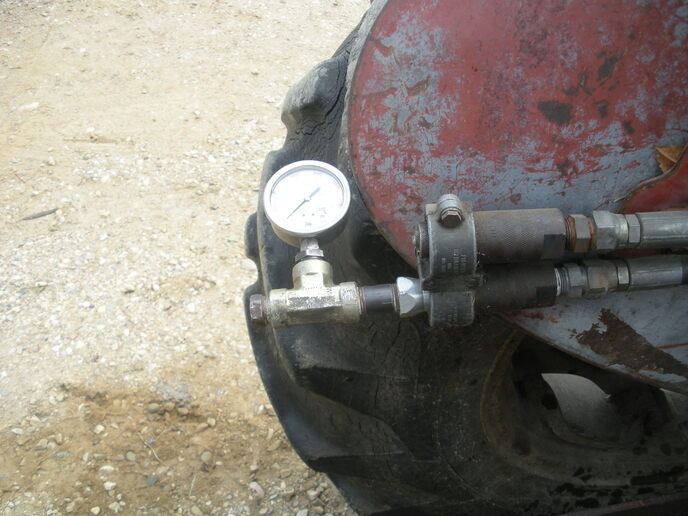Hey - I have a question related to the hydraulic cylinder on my John Deere 12' disc and my 1959 Farmall 460.
Last spring I was working a field and when I went to raise the disc it only partially went up. Low pressure I assumed maybe due to low hitran fluid. Anyway I checked it in the tractor and did not seem to low, but I filled it anyway to max it out. Regardless same outcome.
Then I proceeded to check the hoses. They always seemed to leak somewhat so I replaced both the output and intake hoses hoping that was the cause. Well same outcome.
To make sure it wasnt the cylinder (or atleast from my limited knowledge) I hooked up the hoses vice versus and the result was that now the disc would not go completely down. Same outcome but opposite direction. Now when I say it does not go completely up or down its more like as soon as there is some increased weight the cylinder stops.
My question is this. Would it be the cylinder that maybe bad (only two years old) or is it the pump on the tractor. Obviously one is more expensive than the other. I was hoping someone from this site can give me some better insight on what the possible causes are. I got about 13 acres to plant this spring at my hunting land.
Any guidance would be appreciated! Thanks.
Last spring I was working a field and when I went to raise the disc it only partially went up. Low pressure I assumed maybe due to low hitran fluid. Anyway I checked it in the tractor and did not seem to low, but I filled it anyway to max it out. Regardless same outcome.
Then I proceeded to check the hoses. They always seemed to leak somewhat so I replaced both the output and intake hoses hoping that was the cause. Well same outcome.
To make sure it wasnt the cylinder (or atleast from my limited knowledge) I hooked up the hoses vice versus and the result was that now the disc would not go completely down. Same outcome but opposite direction. Now when I say it does not go completely up or down its more like as soon as there is some increased weight the cylinder stops.
My question is this. Would it be the cylinder that maybe bad (only two years old) or is it the pump on the tractor. Obviously one is more expensive than the other. I was hoping someone from this site can give me some better insight on what the possible causes are. I got about 13 acres to plant this spring at my hunting land.
Any guidance would be appreciated! Thanks.


